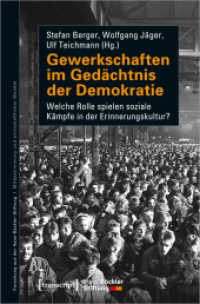Full Description
What role did Winston Churchill play in excluding comprehensive schooling from the 1944 Education Act? What was the failed promise of technical education in the post-war period? Why did Margaret Thatcher manipulate government training programmes before the 1987 General Election? And what was the fallout of Tony Blair's government over lifelong learning?
In this book, Tom Bewick examines the evolution of UK skills policy from the 1881 Royal Commission on Technical Instruction to the present day, revealing how shifting political ideologies have shaped workforce development. He applies a chronological, historical-political policy analysis framework to explain the 'four training states' of skills policy and workforce development between the 1940s and the 2020s:
• The interventionist state (1939-1979)
• The laissez-faire state (1980-1988)
• Localism and the devolved states (1989-2010)
• The technocratic state (2010-present)
Traversing time periods to uncover political and economic driving forces, this book challenges conventional thinking and offers insights into how future skills policies can be more effective.
Contents
Introduction
1. Skills policy as a field of study
2. Political economy of skill: the incremental state
Part I: The interventionist state (1939- 79)
3. Skills planning in the crisis of war
4. The legacy of 1944: turf battles and technology
5. The golden era of industrial training
Part II: The laissez-faire state (1980- 88)
6. Rolling back the frontiers of the training state?
7. Employer voluntarism: who pays?
Part III: Localism and the devolved states (1989- 2010)
8. The rise and fall of Training and Enterprise Councils
9. New Labour and the learning age
10. Skills policy in the devolved nations
Part IV: The technocratic state (2010-present)
11. Austerity in FE: forgotten education?
Conclusion
12. The future of work







